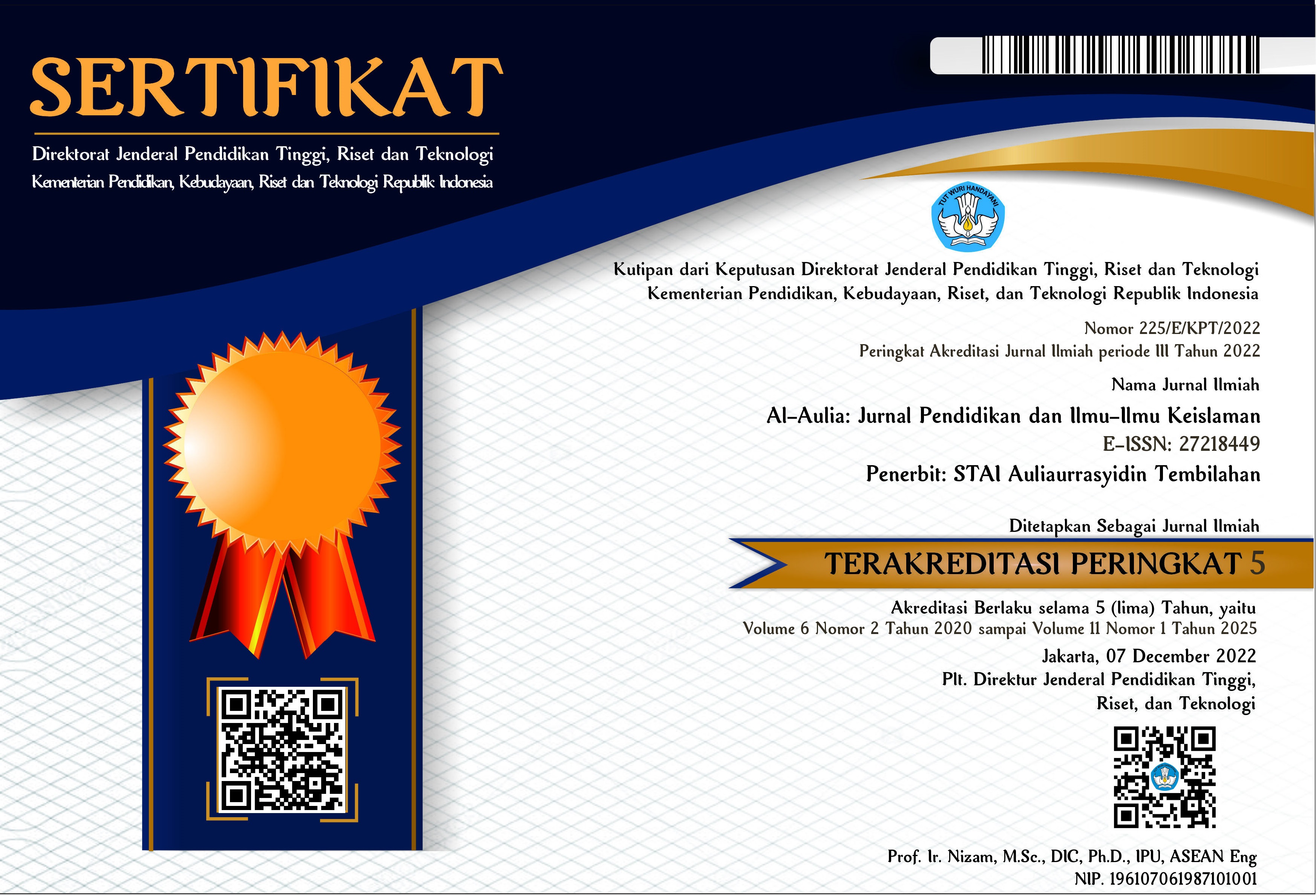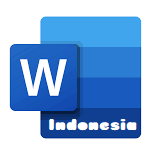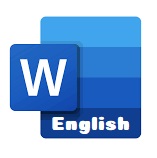Transformasi AI dan Kurikulum: Tantangan Pendidikan Islam menghadapi Abad ke- 21
DOI:
https://doi.org/10.46963/aulia.v9i2.1395Keywords:
AI Curriculum , Transformation, 21st Century Education, ChallengesAbstract
In the 21st century, Islamic education in Indonesia faces many unprecedented dynamics.With the development of technology, globalization and the increasing demand for personal skills and needs.Challenges and obstacles in exploring the use of artificial intelligence (AI) as a tool to help transform Islamic education curricula to overcome these challengesThe role of AI in curriculum development is to be responsive and adaptive, with the ability to better personalize learning, better track learning, accurately track learning, and make informed decisions. data-based determination.AI has a positive impact in improving the quality and relevance of curricula for the implementation of AI in education. However, the integrity of AI in Islamic education with regard to ethical aspects and challenges including data privacy, digital divide, and social considerations means that the 21st century considerations are an exploration of the potential and risks of using AI in educational contexts to provide recommendations for educational stakeholders. As such, this study not only provides a philosopher's view of AI in Islamic education, but also provides a framework that can help Islamic educational institutions utilize AI to face 21st century challenges and improve the quality of education.
References
Ahyar, H., Maret, U. S., Andriani, H., Sukmana, D. J., Mada, U. G., Hardani, S.Pd., M. Si., Nur Hikmatul Auliya, Grad. Cert. B., Helmina Andriani, M. Si., Fardani, R. A., Ustiawaty, J., Utami, E. F., Sukmana, D. J., & Istiqomah, R. R. (2020). Buku Metode Penelitian Kualitatif & Kuantitatif (Issue March).
Ainun, F. P. (2022). Identifikasi Transformasi Digital Dalam Dunia Pendidikan Mengenai Peluang Dan Tantangan Di Era Disrupsi. Kewarganegaraan, 6(1), 1570–1580.
Baroya, E. P. I. H. (2018). Strategi Pembelajaran Abad 21 - Lpmp Jogja. Jurnal Lembaga Penjaminan Mutu Pendidikan Prov. DIYogyakarta, I(01), 101–115.
Hasanah, N. Z., & Zakly, D. S. (2021). Asatiza : Jurnal Pendidikan. 02(03), 151–161.
Jaliah, J., Fitria, H., & Martha, A. (2020). Pengaruh Kepemimpinan Kepala Sekolah dan Manajemen Kepala Sekolah terhadap Kinerja Guru. Journal of Education Research, 1(2), 146–153. https://doi.org/10.37985/joe.v1i2.14
Kurniawan, S. (2019). Tantangan Abad 21 bagi Madrasah di Indonesia. Intizar, 25(1), 55–68.
Mubarok, R. (2021). Pengembangan Manajemen Sumber Daya Manusia di Lembaga Pendidikan Islam Ramdanil Mubarok Sekolah Tinggi Agama Islam (STAI) Sangatta. Jurnal Manajemen Pendidikan Islam, 3(2), 131–146. https://doi.org/10.0118/alfahim.v3i2.183
Mustopa, A. M. Y. S., & Iswantir, I. (2023). Pengembangan Manajemen Lembaga Pendidikan Islam di Era Disrupsi. Al-Qalam: Jurnal Kajian Islam Dan Pendidikan, 15(1), 1–12.
Rahayu, R., Iskandar, S., & Abidin, Y. (2022). Inovasi Pembelajaran Abad 21 dan Penerapannya di Indonesia. Jurnal Basicedu, 6(2), 2099–2104. https://doi.org/10.31004/basicedu.v6i2.2082
Yusuf, M., Julianingsih, D., & Ramadhani, T. (2023). Transformasi Pendidikan Digital 5 . 0 melalui Integrasi Inovasi Ilmu Pengetahuan dan Teknologi. Jurnal MENTARI: Manajemen Pendidikan Dan Teknologi Informasi, 2(1), 11–19.
Downloads
Published
Issue
Section
License
Copyright (c) 2023 Muhammad Irsyad, Supratman Zakir

This work is licensed under a Creative Commons Attribution-ShareAlike 4.0 International License.
Authors who publish with this journal agree to the following terms:
1. Copyright on any article is retained by the author(s).
2. The author grants the journal, right of first publication with the work simultaneously licensed under a Creative Commons Attribution License that allows others to share the work with an acknowledgment of the work’s authorship and initial publication in this journal.
3. Authors are able to enter into separate, additional contractual arrangements for the non-exclusive distribution of the journal’s published version of the work (e.g., post it to an institutional repository or publish it in a book), with an acknowledgment of its initial publication in this journal.
4. Authors are permitted and encouraged to post their work online (e.g., in institutional repositories or on their website) prior to and during the submission process, as it can lead to productive exchanges, as well as earlier and greater citation of published work.
5. The article and any associated published material is distributed under the Creative Commons Attribution-ShareAlike 4.0 International License







